1 General condition
A first glance at the general condition of a machine will tell you a lot about how it has been treated. Large body panels such as bonnets can be expensive to replace, so any damage should be taken into account.
Lights, mirrors and all glassware should be intact. The machine should be started and let run for five to 10 minutes before test driving. It is vital that the load monitor indicator (LMI) is working. This is a safety device that is present in all telehandlers.
Similar to the general exterior condition, the condition inside the cab gives a good indication of how well the machine was looked after. The handbrake, for example, should be fully functional. Generally, an issue with the handbrake is as simple as replacing the cable.
All joystick functions along with switches should be tested, making sure each does as intended, including boom suspension and lights, etc. The dash should be checked, ensuring there are no warning lights signalled. The temperature gauge should be monitored and unless being worked very hard, it should not pass the halfway mark. If fitted with a reversible fan, check that it is working.

The joystick and all switch gear should be fully fucntional.
2 Check for wear
Regular service intervals and consistent greasing will determine lifespan. The main points of wear and tear to watch out for on articulated loaders are the central pivot point, steering rams, pins and bushings. Such machines can be costly to re-bush, so take this into consideration.
Depending on the make and model, a new central pivot pin, bushings and bearings would set you back €950 plus VAT.

All pivot points should be checked for wear, especially the main centre pivot.
Potential buyers should check if the boom frame edges closer to the windscreen when downward pressure is applied on the implement against the ground. This is an indication of significant wear.
Tyre condition will have a bearing on the valuation of the machine and will give a potential buyer a good indication of the hours the machine has clocked up.
A headstock that has not received enough grease will be worn. A new headstock will cost about of €3,000 plus VAT.
The boom should be extended and inspected for any cracks or bends. Ideally, there should also be grease on the walls. A screeching nose when extending the boom will indicate a lack of grease.
3 Engine
The engine should be clean and dry. Potential buyers should ask about service intervals and check the oil by pulling the dipstick (when cold). Oil should have a good viscosity and not be overly black in colour. Gloopy, stringy oil indicates the engine has gone past its service interval.
The breather pipe on the underbody of the machine should be free of dripping oil or smoke. If smoke is coming out, it may indicate head gasket issues.
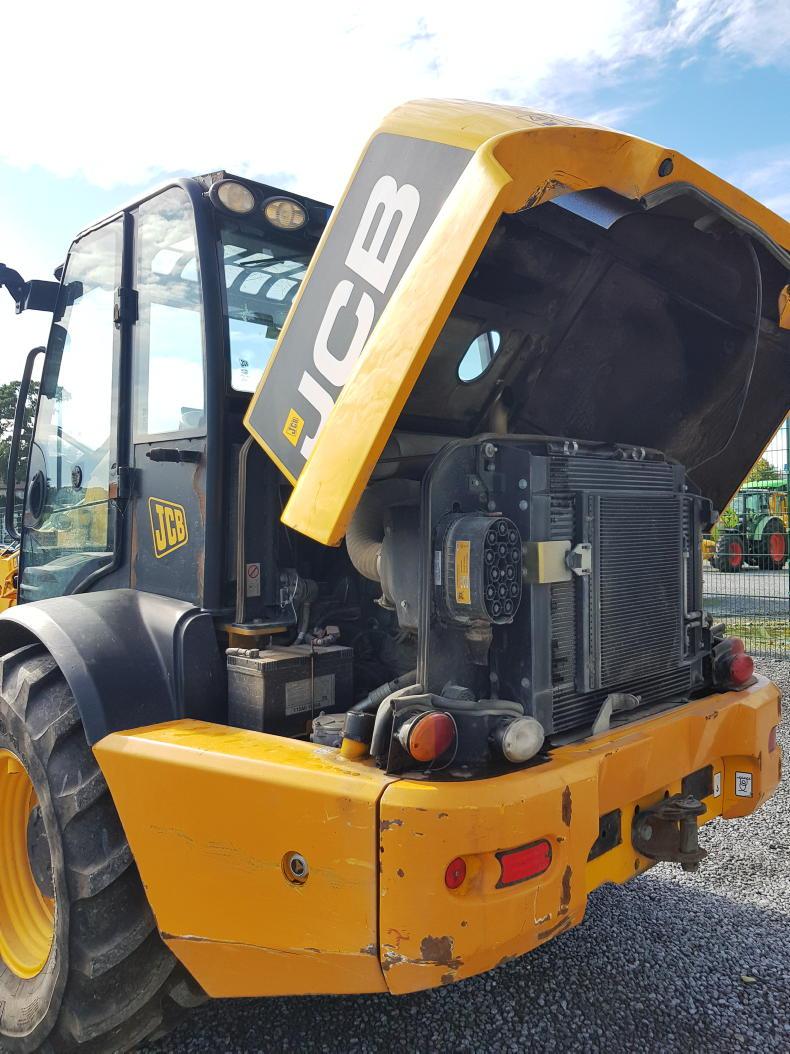
Check oil level when the engine is cool along with the condition of filters and that the engine is overall clean and dry.
The radiator should be inspected for damage. Coolant should be at the recommended level and not leaking. The air filter should be checked to see if it is full of dust; another indication of how well the machine was looked after. A blocked air breather will put a serious strain on both the turbo and the engine.
4 Transmission
The handiest way to check a power-shift transmission is to drive the machine forward and in reverse in each gear, which it should do smoothly and at its ease. Depending on how many hours the machine has clocked up and the work it has carried out, the brakes may need to be done. The brakes should react to force being applied to the pedal. Non-responsive brakes pose a serious safety hazard and will leave the buyer with a costly repair bill. Axle hubs should be checked for any leakages.
5 Hydraulics
The easiest way to check the hydraulics is to test all functions and ensure they are responsive at the same time. The boom should be extended while lifting and tilting it at the same time. These functions should work comfortably together.
Hydraulic hoses should be inspected for leaks or perished hoses. Ram seals should be checked for leaks. If an internal seal is damaged, it can be a costly job to replace and will leave the machine out of action for a period of time.

All hydraulics should be fully tested and rams inspeced for leaking seals and worn hoses.
An overdue hydraulic oil and filter service interval will slow the hydraulic system and will give you an indication of how well the machine was cared for. Most machines will have a sight glass where you can check the hydraulic oil level.
1 General condition
A first glance at the general condition of a machine will tell you a lot about how it has been treated. Large body panels such as bonnets can be expensive to replace, so any damage should be taken into account.
Lights, mirrors and all glassware should be intact. The machine should be started and let run for five to 10 minutes before test driving. It is vital that the load monitor indicator (LMI) is working. This is a safety device that is present in all telehandlers.
Similar to the general exterior condition, the condition inside the cab gives a good indication of how well the machine was looked after. The handbrake, for example, should be fully functional. Generally, an issue with the handbrake is as simple as replacing the cable.
All joystick functions along with switches should be tested, making sure each does as intended, including boom suspension and lights, etc. The dash should be checked, ensuring there are no warning lights signalled. The temperature gauge should be monitored and unless being worked very hard, it should not pass the halfway mark. If fitted with a reversible fan, check that it is working.

The joystick and all switch gear should be fully fucntional.
2 Check for wear
Regular service intervals and consistent greasing will determine lifespan. The main points of wear and tear to watch out for on articulated loaders are the central pivot point, steering rams, pins and bushings. Such machines can be costly to re-bush, so take this into consideration.
Depending on the make and model, a new central pivot pin, bushings and bearings would set you back €950 plus VAT.

All pivot points should be checked for wear, especially the main centre pivot.
Potential buyers should check if the boom frame edges closer to the windscreen when downward pressure is applied on the implement against the ground. This is an indication of significant wear.
Tyre condition will have a bearing on the valuation of the machine and will give a potential buyer a good indication of the hours the machine has clocked up.
A headstock that has not received enough grease will be worn. A new headstock will cost about of €3,000 plus VAT.
The boom should be extended and inspected for any cracks or bends. Ideally, there should also be grease on the walls. A screeching nose when extending the boom will indicate a lack of grease.
3 Engine
The engine should be clean and dry. Potential buyers should ask about service intervals and check the oil by pulling the dipstick (when cold). Oil should have a good viscosity and not be overly black in colour. Gloopy, stringy oil indicates the engine has gone past its service interval.
The breather pipe on the underbody of the machine should be free of dripping oil or smoke. If smoke is coming out, it may indicate head gasket issues.

Check oil level when the engine is cool along with the condition of filters and that the engine is overall clean and dry.
The radiator should be inspected for damage. Coolant should be at the recommended level and not leaking. The air filter should be checked to see if it is full of dust; another indication of how well the machine was looked after. A blocked air breather will put a serious strain on both the turbo and the engine.
4 Transmission
The handiest way to check a power-shift transmission is to drive the machine forward and in reverse in each gear, which it should do smoothly and at its ease. Depending on how many hours the machine has clocked up and the work it has carried out, the brakes may need to be done. The brakes should react to force being applied to the pedal. Non-responsive brakes pose a serious safety hazard and will leave the buyer with a costly repair bill. Axle hubs should be checked for any leakages.
5 Hydraulics
The easiest way to check the hydraulics is to test all functions and ensure they are responsive at the same time. The boom should be extended while lifting and tilting it at the same time. These functions should work comfortably together.
Hydraulic hoses should be inspected for leaks or perished hoses. Ram seals should be checked for leaks. If an internal seal is damaged, it can be a costly job to replace and will leave the machine out of action for a period of time.

All hydraulics should be fully tested and rams inspeced for leaking seals and worn hoses.
An overdue hydraulic oil and filter service interval will slow the hydraulic system and will give you an indication of how well the machine was cared for. Most machines will have a sight glass where you can check the hydraulic oil level.








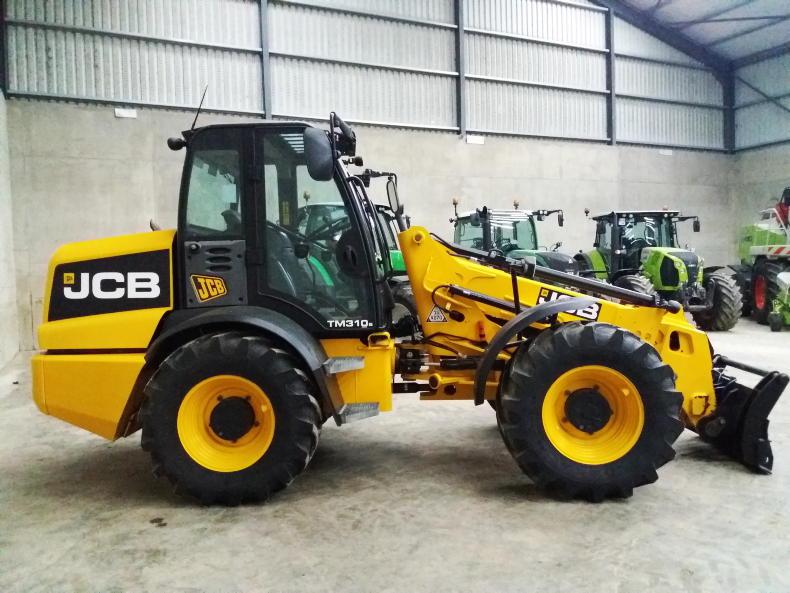
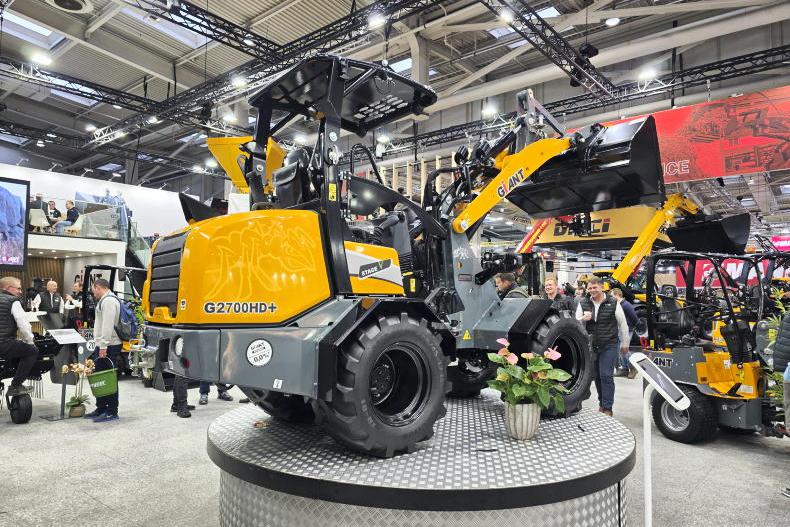


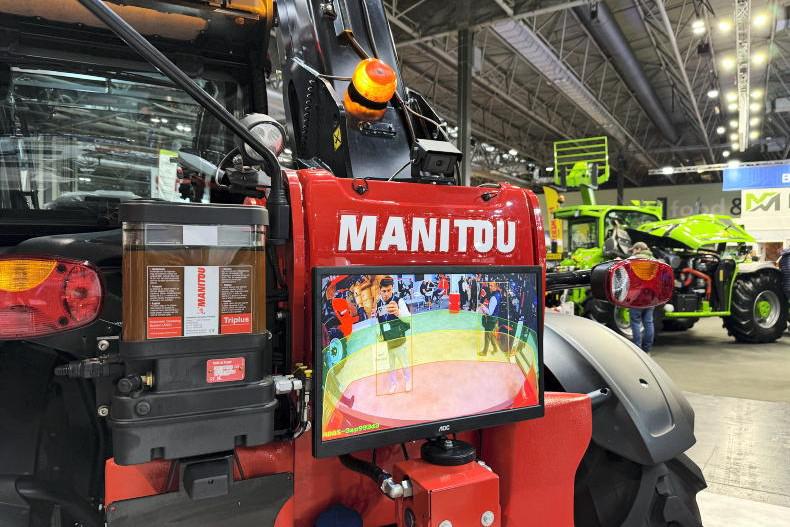
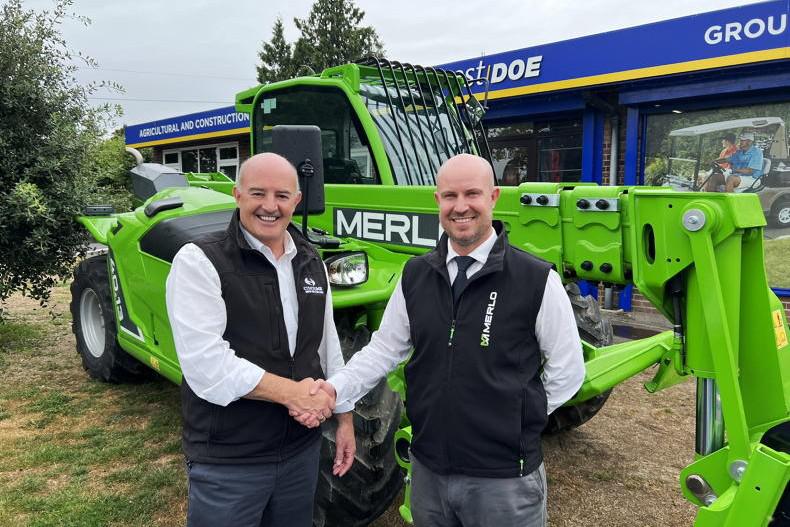
SHARING OPTIONS